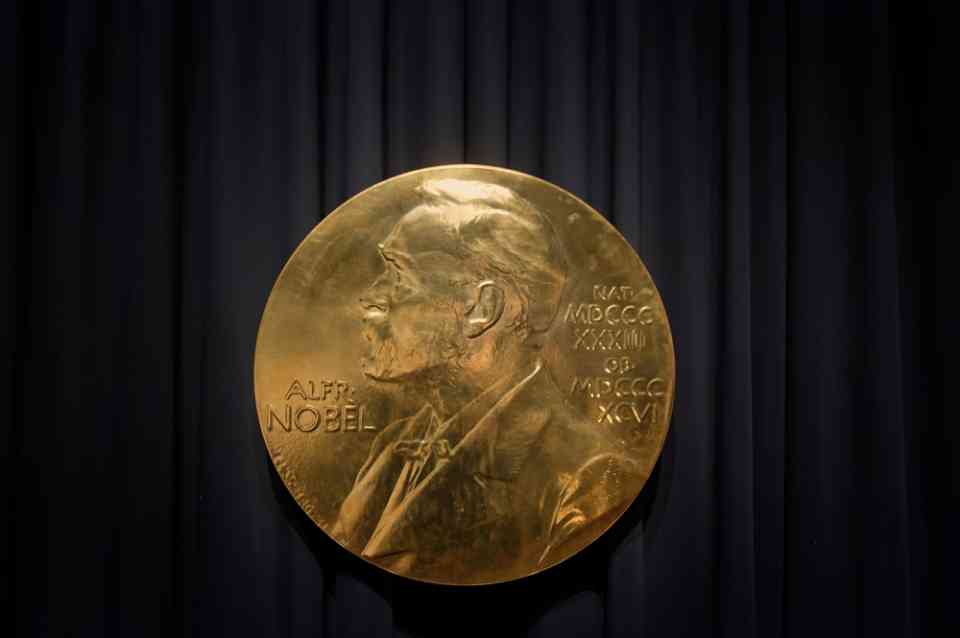2024 Nobel Prize in Economics Awarded to Three Economists for Research on Democracy and Institutions

The 2024 Nobel Prize in Economics has been awarded to three economists based in the United States—Daron Acemoglu, Simon Johnson, and James Robinson—for their research on the advantages of democracy, the rule of law, and why these institutions thrive in some countries but not in others. Acemoglu, a Turkish-American economist, and Johnson, a British economist, both work at the Massachusetts Institute of Technology, while Robinson, a British-American economist, is based at the University of Chicago.
The Nobel Committee awarded the prize for their work on how institutions are formed and how they influence prosperity, emphasizing that their research crosses into political science and sociology as much as it does economics. At a time when global support for democracy seems to be waning, the committee acknowledged their findings, which show that democratic countries governed by the rule of law tend to have wealthier populations on average.
The committee noted that the world’s wealthiest 20% of countries are about 30 times richer than the poorest 20%, and this income gap has remained consistent. Although the poorest countries have seen some economic growth, they have not caught up with the most prosperous nations. The economists linked this disparity to institutional differences rooted in European colonization centuries ago.
Their research highlights that in regions with dense indigenous populations, colonizers encountered greater resistance and settled in fewer numbers. In these areas, after subjugating the local populations, European settlers created institutions that favored a small elite, restricting political rights and focusing on exploitation. In contrast, in less populated regions with lower resistance, more settlers arrived, establishing inclusive institutions that promoted hard work and eventually led to demands for political rights.
This historical analysis led the Nobel committee to conclude that regions that were prosperous around 500 years ago, such as Mexico under the Aztecs, are now relatively poor compared to places like Canada and the United States, which were less developed at the same time.
The 2024 laureates are well-known not only within academic circles but also among the public. Acemoglu and Robinson gained widespread recognition for their 2013 bestseller Why Nations Fail: The Origins of Power, Prosperity, and Poverty, which made complex ideas accessible without relying on equations. Acemoglu and Johnson recently published Power and Progress: Our Thousand-Year Struggle Over Technology and Prosperity in 2023.
In May of this year, Acemoglu wrote about artificial intelligence, taking a controversial stance by arguing that AI’s impact on productivity would be “nontrivial but modest,” implying that its benefits would be small. He also suggested that AI’s effect on overall well-being might be even less significant and doubted it would reduce inequality.
Although all three Nobel winners currently hold positions at U.S. universities, the prize makes the cohort of Nobel recipients slightly less U.S.-dominated. Acemoglu hails from Turkey, and both Johnson and Robinson are British. Additionally, Robinson has an Australian connection, having taught economics at the University of Melbourne from 1992 to 1995.
Winning the Nobel Prize is transformative, not just because the laureates share the 11 million Swedish kroner (around A$1.5 million), but because it raises their public profile. Their opinions are likely to be more widely respected, though not by everyone. Sixteen previous Nobel winners recently voiced concerns about the potential economic risks of a second Trump administration, prompting the Trump campaign to dismiss them as “worthless, out-of-touch Nobel prize winners.” The new laureates may face similar reactions, as Johnson has criticized Trump’s tariff proposals, and Acemoglu has labeled Trump “a threat to democracy.”
Have you read?
Best CEOs.
Best Companies.
Richest People (Billionaire).
Richest Women (Billionaire).
Richest in Each Country (Billionaire).
Bring the best of the CEOWORLD magazine's global journalism to audiences in the United States and around the world. - Add CEOWORLD magazine to your Google News feed.
Follow CEOWORLD magazine headlines on: Google News, LinkedIn, Twitter, and Facebook.
Copyright 2025 The CEOWORLD magazine. All rights reserved. This material (and any extract from it) must not be copied, redistributed or placed on any website, without CEOWORLD magazine' prior written consent. For media queries, please contact: info@ceoworld.biz








